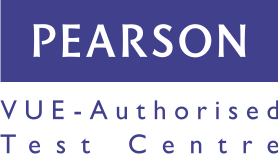O tym kursie
Ten trzydniowy kurs prowadzony przez instruktora jest skierowany do osób, które chcą przejść do roli profesjonalisty baz danych lub których zakres obowiązków rozszerza się o elementy związane z bazami danych. Kurs opisuje podstawowe koncepcje baz danych, w tym typy baz danych, języki baz danych i projektowanie baz danych. Kurs ten aktualizuje i zastępuje kurs 10985C, który wcześniej został opublikowany pod tym samym tytułem.
Profil uczestników
Główną grupą docelową tego kursu są osoby przechodzące do roli związanej z bazami danych lub których zakres obowiązków rozszerzył się o technologie baz danych. Również programiści dostarczający treści z baz danych SQL Server będą korzystać z tego materiału.
Czego się nauczysz?
Jest to kurs na poziomie podstawowym, dlatego wymaga tylko ogólnego opanowania obsługi komputera.
Moduł 1: Wprowadzenie do baz danych
Ten moduł przedstawia kluczowe koncepcje baz danych w kontekście SQL Servera.
Lekcje:
Laboratorium: Eksploracja baz danych i tabel SQL Servera
Moduł 2: Modelowanie danych
Ten moduł opisuje techniki modelowania danych.
Lekcje:
Laboratorium: Identyfikacja składników w modelowaniu relacji
Moduł 3: Normalizacja
Ten moduł opisuje techniki normalizacji i denormalizacji.
Lekcje:
Laboratorium: Normalizacja danych
Moduł 4: Relacje
Ten moduł opisuje rodzaje relacji i ich efekty w projektowaniu baz danych.
Lekcje:
Laboratorium: Planowanie i wdrażanie integralności referencyjnej
Moduł 5: Wydajność
Ten moduł wprowadza efekty projektowania bazy danych na wydajność.
Lekcje:
Laboratorium: Problemy wydajności
Moduł 6: Obiekty bazy danych
Ten moduł wprowadza powszechnie używane obiekty bazy danych.
Lekcje:
Laboratorium: Korzystanie z obiektów SQL Server
Module 7: Performance Tuning
Ten moduł skupia się na optymalizacji wydajności bazy danych.
Lekcje:
Laboratorium: Tuning wydajności
Module 8: Backup and Recovery
Ten moduł obejmuje strategie tworzenia kopii zapasowych i odzyskiwania danych w SQL Serverze.
Lekcje:
Laboratorium: Tworzenie kopii zapasowych i odzyskiwanie danych
Firma jest Autoryzowanym Ośrodkiem Szkoleniowym MICROSOFT Silver Learning
Możesz u nas podejść do egzaminu Pearson VUE
Spółka posiada wpis do ewidencji placówek niepublicznych Nr ew. ES.VIII.4320-6/p.n./2003 wydany z upoważnienia Prezydenta Miasta Łodzi
 |
 |
Zachęcamy do skorzystania z możliwości dofinansowania szkoleń oferowanych przez naszą firmę. Dostępne rozwiązania:
Skontaktuj się z nami, aby uzyskać więcej informacji. Oferujemy pełne wsparcie w tym procesie.
Zapraszamy!
|
|
|
Najbliższy termin: Prosimy o kontakt
Najbliższy termin: Prosimy o kontakt
Najbliższy termin: Prosimy o kontakt
Najbliższy termin: Prosimy o kontakt
Najbliższy termin: Prosimy o kontakt
Najbliższy termin: Prosimy o kontakt
Najbliższy termin: Prosimy o kontakt
Najbliższy termin: Prosimy o kontakt
Najbliższy termin: Prosimy o kontakt
Najbliższy termin: Prosimy o kontakt
Najbliższy termin: Prosimy o kontakt
Najbliższy termin: Prosimy o kontakt
